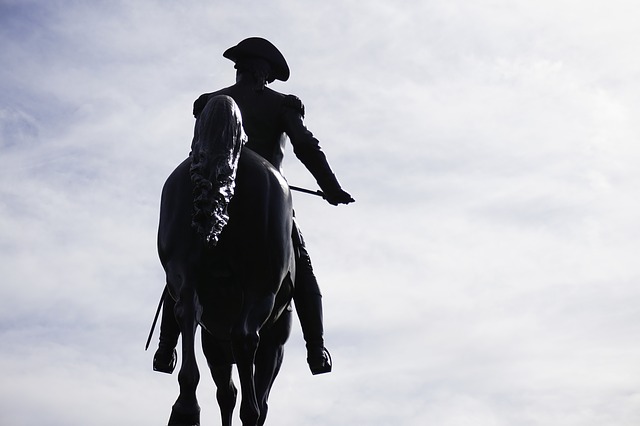Book review:
An Empire on the Edge:
How Britain Came to Fight America
by Nick Bunker
Here’s the short version of Nick Bunker’s thesis:
King George and his government
let the North American colonies slip from their grasp.
A newcomer to the history of the American Revolution might think that this book is a cockeyed way to learn about the “shot heard ‘round the world” and the consequences of the shooting at Lexington and Concord on April 19, 1775.
An informed student of the Revolutionary War probably will find much new material in Bunker’s relentlessly detailed An Empire on the Edge: How Britain Came to Fight America.
On our side of the pond, we don’t have much opportunity to consider the war or the revolution from the British point of view.
Bunker offers devastating detail about the ill-informed, patronizing, self-serving, doctrinaire, and sometimes feckless actions of Lord North and the British government in the years that led to the sanguinary clash of British regulars and American farmers-militiamen on the road from Concord, through Lexington, to Boston on “that famous day and year.”
An Empire on the Edge offers extensive documentation confirming that the British leaders were largely ignorant of the scope and depth of colonial antipathy toward the various punitive measures that Britain sought to impose in North America, as early as 1765 (the Stamp Act) and continuing to the final, ill-fated steps to chastise the city of Boston after the notorious Tea Party in late 1773.
Bunker describes the half-cocked military moves by Lord North and his ministers in the years leading up to the disastrous outing to Lexington-Concord. The king and his government were not prepared to wage war successfully in North America, partly because they waited too long to believe that the colonists actually would fight, and partly because they disdained the colonials’ fighting capacity, and partly because they put higher priority on their Caribbean sugar colonies, and partly because they were pre-occupied with the military threat posed by France and various European intrigues.
 Bunker doesn’t speculate on a question that occurs to me: after that first shot was fired at Lexington, did the British really commit themselves to winning the war?
Bunker doesn’t speculate on a question that occurs to me: after that first shot was fired at Lexington, did the British really commit themselves to winning the war?
The king and his government made the commitment to fight. They did not, however, at any time before or during the war, commit all the king’s horses and all the king’s men to the military campaign to regain dominion in North America. As the fighting began, a British victory was not immediately feasible. Perhaps it did not become feasible.
Bunker’s analysis of the planning and wrangling in Lord North’s war room suggests that the British wanted to win, but never pushed the right strategic buttons to bring victory within their grasp.
Book review. Copyright © Richard Carl Subber 2016 All rights reserved.
———
Book review: An Empire Divided
King George and his ministers
wanted the Caribbean sugar islands
more than they wanted the 13 colonies…
by Andrew Jackson O’Shaughnessy
click here
–
As with another eye: Poems of exactitude with 55 free verse and haiku poems,
and the rest of my poetry books are for sale on Amazon (paperback and Kindle)
and free in Kindle Unlimited, search Amazon for “Richard Carl Subber”
© 2020 – 2024, Richard Subber. All rights reserved.

0 Comments